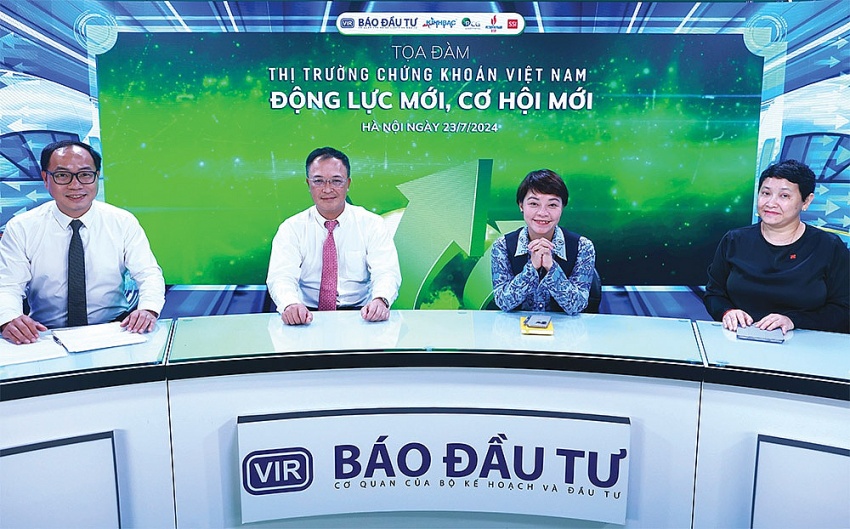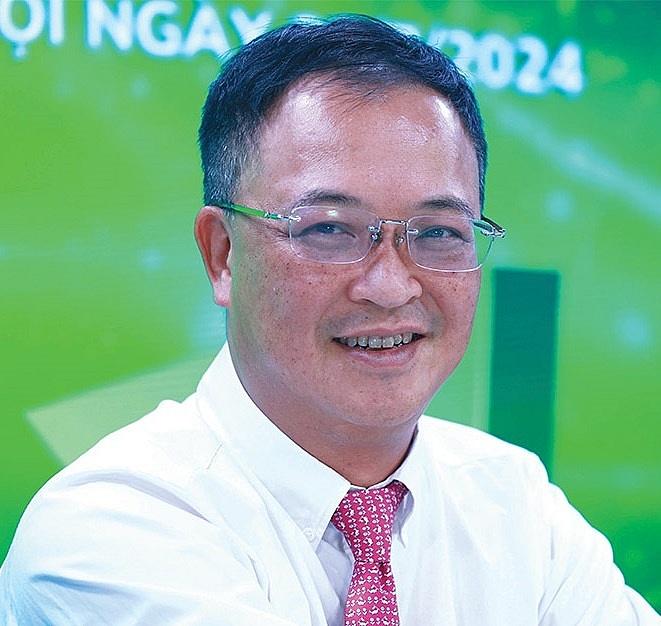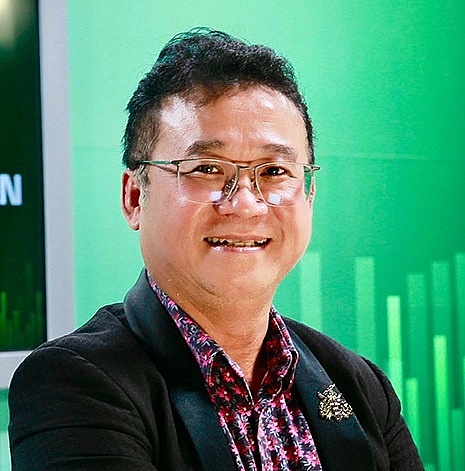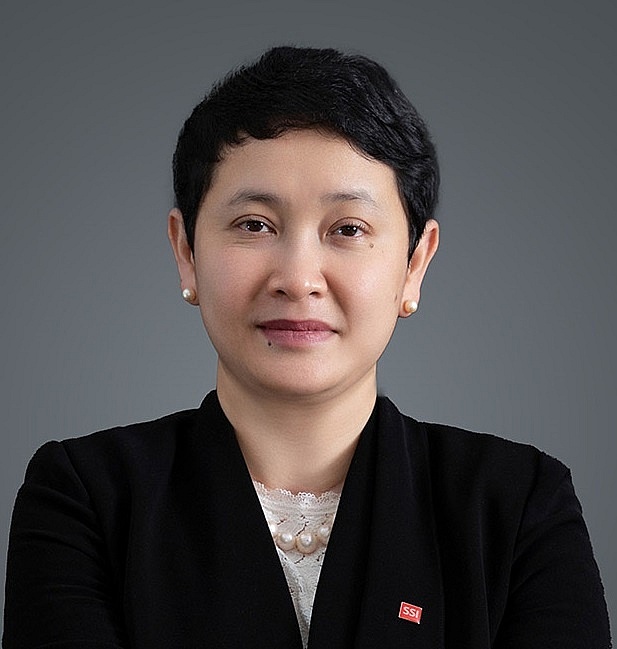Investors to embrace stock market refresh
 |
| Investors to embrace stock market refresh, Photo: Dung Minh |
The initiative is part of a broader effort to elevate Vietnam from a frontier market to an emerging market in 2025, as outlined in a new draft circular released last week.
“Currently, foreign investors must pre-fund 100 per cent of their transactions, a major barrier that rating agencies have urged Vietnam to address. The proposed amendments, now open for public consultation by the State Securities Commission, would eliminate this requirement,” the draft circular stated.
Instead, brokerage firms will assess the risk to determine the necessary margin for foreign institutional investors when placing buy orders. If a foreign institution fails to complete the payment, the brokerage firm will assume the remaining liability, potentially selling the shares or transferring ownership outside the system.
Additionally, the new draft mandates that listed companies, public companies, stock exchanges, and the Vietnam Securities Depository must publish information in English, ensuring consistency with the Vietnamese version.
In a seminar hosted by VIR on the stock market last week, Le Thi Le Hang, chief strategy officer at SSI Securities Corporation, offered some optimism about the current trajectory.
“Foreign investors view Vietnam’s stock market as having significant growth potential due to its young population, high GDP growth compared to neighbouring markets, and robust foreign direct investment inflows,” she noted.
Despite these positive factors, foreign investors have pointed out several challenges, including the current pre-funding requirement, which deviates from international norms, making it difficult for foreign investors to transact efficiently. The limited foreign ownership cap also restricts investment options.
“For example, the VN30 index has not seen any new additions. This limits foreign investors, who want to allocate more capital to the Vietnamese market, as they wait for expanded ‘room’ to increase liquidity,” she said. “Foreign investors are still hopeful that Vietnam’s stock market will be upgraded to an emerging market status. When this happens, their investment boards will increase allocations to Vietnam.”
Hang noted that in the first half of 2024, foreign investors have net withdrawn approximately $2 billion. Conversely, an upgrade could allure a similar amount back into the market.
“If investors anticipate that Vietnam’s stock market will be upgraded, meeting FTSE or MSCI criteria, they might act preemptively and enter the market immediately,” she added.
“However, this depends on whether we have new developments, such as improvements in the quality of securities and the introduction of new products. If the process goes smoothly, Vietnam could be included in the emerging market index by March 2026.”
She further elaborated that if Vietnam achieves an FTSE upgrade by September 2025, the actual inclusion in the emerging market index would follow within 6-12 months. “Assuming favourable feedback from foreign investors regarding the current bottlenecks, Vietnam’s stock market could become more vibrant by late 2025,” Hang said.
Nguyen Thi Thu Hien, CEO of Techcom Securities, also advocated for the implementation of a sandbox model to trial new securities products in Vietnam. Hien suggested selecting a few robust securities firms and financial intermediaries to pilot structured products for the market.
“Investors participating in this model should be chosen based on their market knowledge and ability to make informed decisions and take responsibility for them. This approach will allow us to trial new products in the market,” she said.
“When engaging with the delegation from the Japan International Cooperation Agency, they also recommended that Vietnam introduce new products, many of which are already available in other global markets but not yet in Vietnam. We proposed the sandbox pilot model as the only way to help our market catch up with others in the region,” Hien stressed.
The future of Vietnam’s securities market will not be limited to stocks, bonds, and fund certificates. It will include a wider array of investment products, she added. This diversification aligns with the increasing proportion of investors allocating to financial assets.
The “Vietnam’s stock market: new dynamics, new opportunities” seminar was supported by Kinh Bac City Development Holding Corporation, Bamboo Capital Group, Binh Son Refining and Petrochemical, and SSI Securities Corporation.
| Bui Hoang Hai, deputy chairman State Securities Commission of Vietnam
Supporting and promoting large enterprises to list is also a strategy that we are pursuing to upgrade the Vietnamese stock market. Currently, initial public offerings (IPOs) and listing are two separate processes. Some companies complete their IPOs, but the listing process is prolonged. Hence, we are reviewing securities regulations to integrate the IPO and listing processes into one. After amending these regulations, companies will be listed immediately after their IPOs. In reality, the number of large enterprises listed on the stock market has not been significant, while the presence of large enterprises on the stock market and the market upgrade are organically related. A paradox exists where many large enterprises have not listed because they do not see enough strong investors capable of acquiring large stakes. These companies do not want ownership to be dispersed among too many small shareholders. Meanwhile, foreign institutional investors are delaying their investments in the Vietnamese stock market due to the lack of large, quality enterprises. Some high-quality large firms on the exchange have already reached their foreign ownership limits. Some large stocks are on the Unlisted Public Company Market, such as Binh Son Refining and Petrochemical (BSR), where international institutions are only allowed to invest a tiny proportion according to regulations. BSR has a market capitalisation of $2.75 billion but, despite being very proactive, has encountered some technical issues and has not yet listed its shares on the Ho Chi Minh Stock Exchange (HSX). The company currently has a plan to address these technical issues to soon do so. Dang Thanh Tam, chairman of the Board Kinh Bac City Development
Playing the big game requires proactive preparation from both enterprises and regulatory bodies. Currently, the global economy is experiencing significant volatility, with nations caught in the whirlwind of fierce economic competition. Vietnam is fortunate to be in this whirlwind, but has its own pathway and even benefits from these economic waves. What seems like a challenge is actually an advantage on the international stage, as many investors are shifting their investments to Vietnam. This has helped Vietnam maintain growth in recent times and continue to benefit in the future. I believe that businesses must boldly invest. As businesses, the more difficult the market is, the more businesses must rise strongly to find their way. However, Vietnamese businesses are not ready because of the lack of high-tech human resources. Therefore, before foreign enterprises flock to Vietnam, we must directly address the training of high-tech human resources. Le Thi Le Hang, chief strategy officer SSI Securities Corporation
In recent years, the stock market has not offered many choices, as seen in the case of the VN30 basket, which has not added any new stocks. This means that foreign investors who want to allocate more funds to Vietnam face difficulties because they have to wait for more products, wait for the foreign ownership limits to be increased, and wait for higher liquidity. Bringing more large-scale enterprises to HSX is a necessary and urgent issue for the Vietnamese stock market to have more new stories and ideas to attract foreign investors. |
What the stars mean:
★ Poor ★ ★ Promising ★★★ Good ★★★★ Very good ★★★★★ Exceptional
Related Contents
Latest News
More News
- Banking sector targets double-digit growth (February 23, 2026 | 09:00)
- Private capital funds as cornerstone of IFC plans (February 20, 2026 | 14:38)
- Priorities for building credibility and momentum within Vietnamese IFCs (February 20, 2026 | 14:29)
- How Hong Kong can bridge critical financial centre gaps (February 20, 2026 | 14:22)
- All global experiences useful for Vietnam’s international financial hub (February 20, 2026 | 14:16)
- Raised ties reaffirm strategic trust (February 20, 2026 | 14:06)
- Sustained growth can translate into income gains (February 19, 2026 | 18:55)
- The vision to maintain a stable monetary policy (February 19, 2026 | 08:50)
- Banking sector faces data governance hurdles in AI transition (February 19, 2026 | 08:00)
- AI leading to shift in banking roles (February 18, 2026 | 19:54)




 Tag:
Tag:




















 Mobile Version
Mobile Version